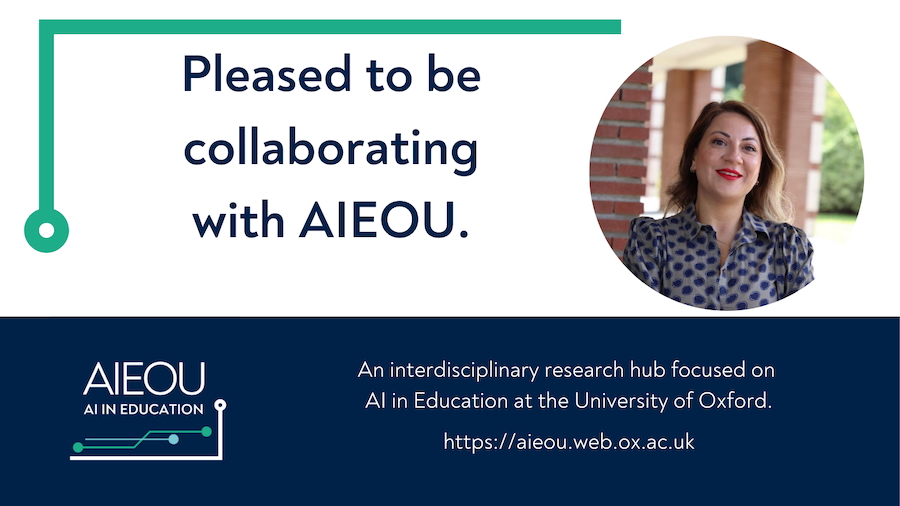Oxford University’s AIEOU: A New Collaborative Approach to AI in Education
Oxford University’s AIEOU: A New Collaborative Approach to AI in Education
by İlkem Kayıcan
I had the opportunity to attend the online launch of Oxford University's new AI in Education Oxford University (AIEOU) research hub on the 29th April. As many of us continue to explore the implications of artificial intelligence in our own educational context, I wanted to share some insights from this significant development in the field.
What makes AIEOU particularly noteworthy is its highly interdisciplinary approach. Rather than positioning AI in education as either a purely technical challenge or an educational theory question, Oxford has brought together specialists from their Department of Education, legal scholars, and industry partners to create a more comprehensive vision.
This collaborative structure acknowledges something many of us have observed: the most challenging questions around AI in education don't fit neatly into our traditional academic silos. They require expertise in learning sciences, educational policy, law, ethics, and technology development working together.
It's also worth highlighting that AIEOU is led by an impressive team of women scholars, including Professors Elizabeth Wonnacott, Rebecca Williams, Victoria Murphy, Anne Trefethen (Pro-Vice-Chancellor for Digital), and Dr. Sara Ratner. In a field where technology initiatives are often male-dominated, this leadership team brings diverse perspectives to the table.
A Framework for Responsible Innovation
During the presentation, the AIEOU team outlined their framework built around four key pillars:
1. Design - Creating AI educational tools with sound pedagogical foundations
2. Regulation - Addressing the policy and legal frameworks needed
3. Implementation - Focusing on how these tools can be effectively integrated into educational settings
4. Impact - Measuring outcomes and ensuring equity
What resonated with me was their explicit commitment to ensuring that AI serves educational goals guided by sound principles rather than purely commercial interests. As they stated clearly in their presentation: "We mustn't hand over the future of education to Big Tech." Their emphasis on evidence-based learning tools that address problems of access rather than widening gaps is also very significant.
I'm pleased to share that I've become one of the collaborators in this research hub, joining academics and practitioners from around the world. Our colleagues Ozlem Inan and Zuleyha Tulay are also among the collaborators.
I'm particularly excited to share that AIEOU will be hosting a three-day conference in mid-September, bringing together students, educators, and industry representatives. This will be an excellent opportunity for those interested in the intersection of AI and education to engage with research and build valuable connections.
Additionally, AIEOU offers visiting scholar positions at their research hub. These opportunities could provide valuable insights and collaborative potential for our own educational approaches.
For those interested in learning more about AIEOU and its upcoming activities, I encourage you to visit their website https://aieou.web.ox.ac.uk/.
In a landscape where discussions about AI in education often swing between uncritical techno-optimism and reflexive resistance, I think AIEOU represents a thoughtful middle path focused on utilizing AI's potential while preserving educational values and promotes equity.


